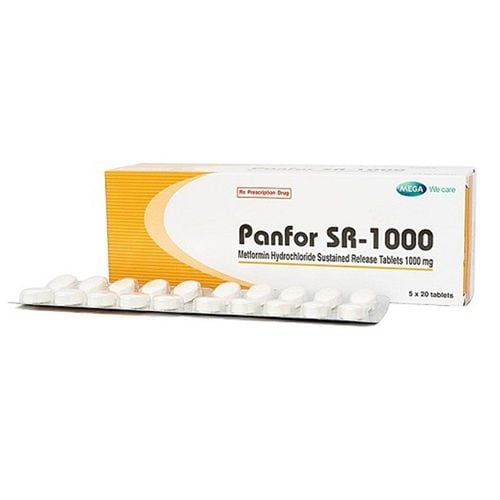This is an automatically translated article.
Many parents have a headache because their children begin to get sick often, have health problems after 6 months of age. That may be due to the children's resistance gradually weakening. Do parents really pay attention to this problem, how do children have strong resistance?
Video content is professionally consulted by Pediatric Center - Vinmec Times City International Hospital
1. Learn about the child's immune system
Children's resistance comes from the body's immune system. Active immunity can be divided into two types: passive immunity and active immunity. In particular, natural active immunity is when the body accidentally comes into contact with a pathogen and has an immune response to that agent. And artificial active immunity is obtained when antigens are actively introduced into the body, such as the mechanism of immunity when vaccination is administered. Passive immunity is the state of immunity of the body thanks to antibodies transferred from outside body, which is typically maternal antibodies passed to the infant during pregnancy and through breast milk. However, this immunity weakens very quickly after 6 months of age. Resistance plays an extremely important role in the development of children, as a "barrier" against the penetration of foreign disease-causing factors such as viruses, bacteria, parasites, etc. ..protect the child's immature body.
Therefore, if the child's resistance is weakened, he or she will be more susceptible to illness, and the body will be slower to recover from illness.... adversely affect the normal development of the child.
2. What causes the child's resistance to decline?
In fact, the child's resistance declines from the 6th month after birth. This is one of the reasons why babies often get sick after 6 months of age. So, what causes the child's resistance to easily decline from the age of 6 months and how to strengthen the child's resistance?
First, as mentioned above, at birth, the baby's body is protected by an antibody system that is passed from mother to child through the placenta and breast milk. However, the amount of this antibody declines very quickly after 6 months while the baby's body is not strong enough to protect itself. Therefore, children are very susceptible to diseases, or persistent illnesses during this period. To improve the child's resistance right from the initial development stage, the baby should be exclusively breastfed for the first 6 months and continue to maintain it until the end of 24 months, even when the baby has started to eat solid foods. Breast milk not only provides enough nutrients for the baby to develop, but also an abundant source of antibodies, including IgG (Ig), IgA (IgA), lysozyme (enzyme), lactoferrin (IgG), shake bowl of ferrin), ... help children fight pathogens.

Second: due to increased exposure to the child's environment. From the age of 6 months, children start eating solids, crawling, crawling, walking, running, putting toys in their mouths... this is an opportunity for viruses and bacteria to attack the child's body. Therefore, parents should keep the baby clean and the environment in which the child is regularly exposed to help prevent the attack of disease-causing bacteria, so that the immune system is also healthier. Thirdly, the children's weaning diet is not balanced with groups of substances, which can lead to the risk of malnutrition, deficiency or excess of nutrients, and the resistance is also weakened. In the period from 6 months to 3 years old babies start the process of solid foods. To increase resistance as well as help children develop comprehensively, a child's diet should have a balance between groups of substances, and be fully supplemented with necessary micronutrients: Zinc, selenium, chromium, vitamins B1 and B6 , vitamin C, ... helps improve taste, good immune system, strengthen resistance, overcome minor illnesses. Parents can supplement nutrients for their children through diet or functional products. Either way, parents need to have perseverance and should be consulted by a doctor to achieve positive results, avoiding excess supplements, ineffective supplements. Fourth, children are not fully vaccinated. Many times, parents are too busy with work to forget the vaccination schedule of their children. Insufficient vaccinations, delayed vaccination will cause the antibodies in the vaccine to not fully promote their ability to protect children, and the children themselves will lose a layer of defense against viruses that cause disease. Therefore, parents need to vaccinate their children fully and on time to protect them from many dangerous infectious diseases such as measles, hepatitis, mumps, chickenpox, Japanese encephalitis,...
Also According to leading nutrition experts, parents need to be calm and persistent when supplementing with nutrients, even through food or functional foods. In particular, the use of functional foods should choose those of natural origin that are easily absorbed, do not allow simultaneous use of many types or continuously change the types of functional foods. Besides, nutrition experts also emphasized on the role of biological zinc; Parents should learn and supplement zinc for children properly at the appropriate time, to avoid zinc deficiency affecting the comprehensive development of children.
In addition to zinc, parents also need to supplement their children with other important vitamins and minerals such as lysine, chromium, B vitamins,... errands.
For more nutritional knowledge and child care for each age, parents should regularly visit the website vimec.com and make an appointment with the leading doctors, pediatric and nutrition experts of the National General Hospital. Vinmec when needing advice on children's health
Please dial HOTLINE for more information or register for an appointment HERE. Download MyVinmec app to make appointments faster and to manage your bookings easily.













